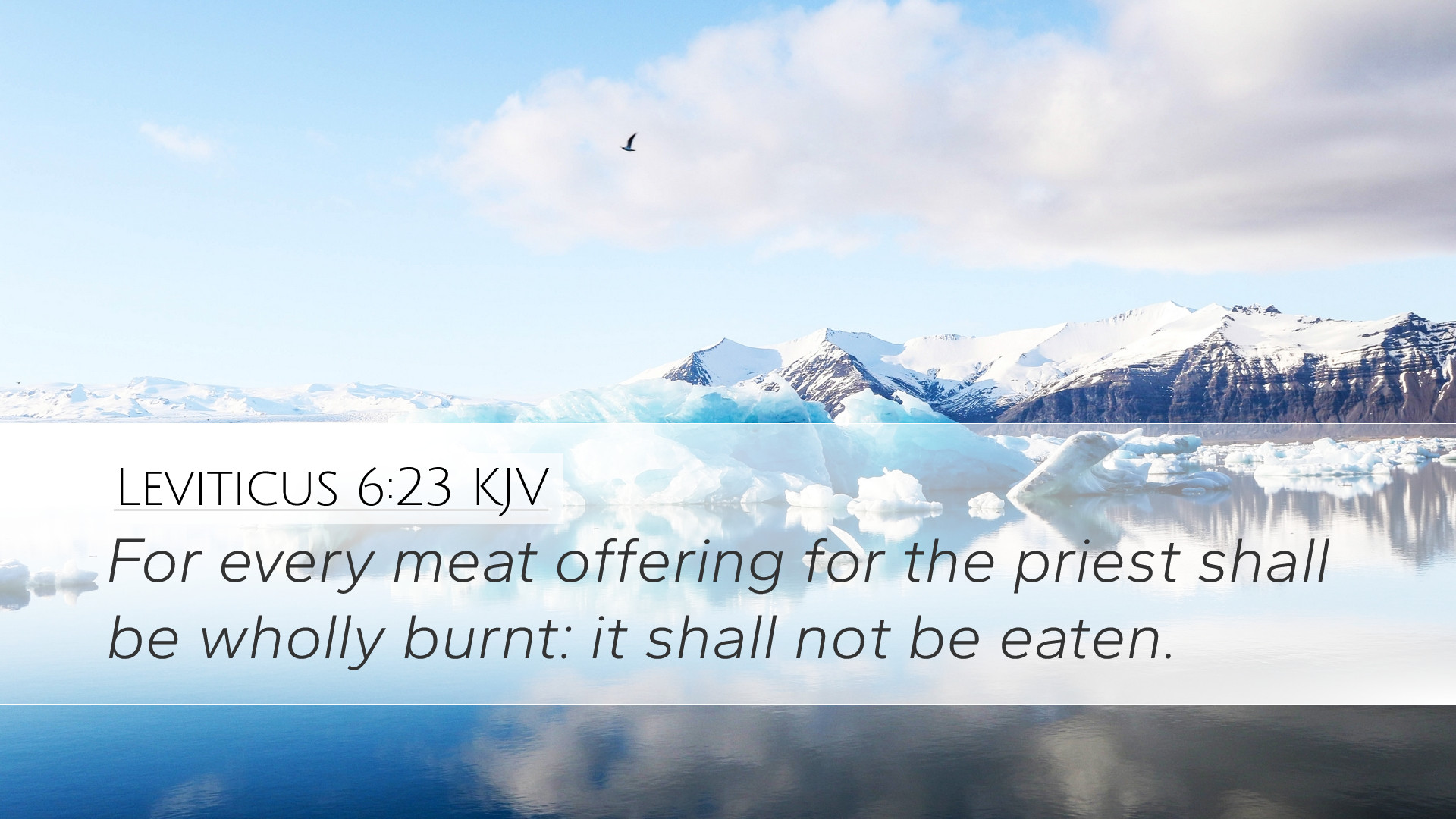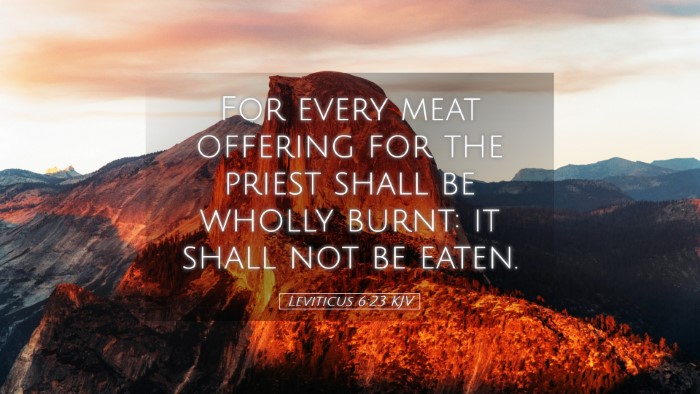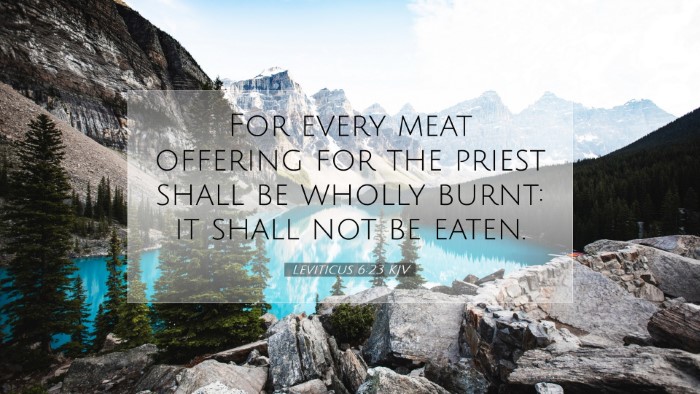Commentary on Leviticus 6:23
Bible Verse: Leviticus 6:23 - "For every grain offering of the priest shall be wholly burned. It shall not be eaten."
Introduction
This verse is situated within the broader context of the Levitical laws that govern various offerings and sacrifices meant to maintain holiness and order within the community of Israel. The grain offerings, particular to the priests, signify the essential relationship between worship and service, conveying important theological and practical implications.
Exegesis and Commentary
The command that the grain offering of the priest is to be wholly burned and not eaten draws attention to the concept of holiness and the sacredness of priestly provisions. The insights from significant public domain commentaries elucidate this passage thoroughly.
Matthew Henry's Commentary
Matthew Henry emphasizes the complete dedication of the grain offering. He argues that the grain offering represents the total surrender of one's earthly goods to God. The fact that it is to be "wholly burned" indicates that it is an act of total commitment and reverence. Henry notes that the offerings highlight the acknowledgment of God as the sustainer and provider, reinforcing the idea that all things are from Him and should return to Him in dedicated worship.
Albert Barnes' Commentary
Albert Barnes provides a detailed interpretation of the priestly role concerning offerings. He points out that the priest’s grain offering serves as a substitutionary element in the sacrificial system. According to Barnes, the prohibition against eating these offerings underscores their nature as sacred. He remarks that this provision was to segregate the priests' offerings from those of the laity, thus signifying the distinct role of the priesthood in mediating the relationship between God and the people. Barnes highlights that these practices would instill a sense of holiness and respect for the offerings among the Israelites.
Adam Clarke's Commentary
Adam Clarke provides additional theological insights into the significance of the grain offerings. He explains that the grain offering symbolizes gratitude and acknowledgment of divine blessings in everyday life, representing work and sustenance. Clarke suggests that the fact these offerings were entirely burnt indicates they were an expression of devotion and that nothing should be retained for personal benefit when dedicated to God. He elaborates on the implications for pastoral duty, noting that priests were to wholly commit their lives to God's service, reflecting this in their handling of the offerings.
Theological Themes
- Holiness and Dedication: The phrase "wholly burned" points to the importance of total holiness and the dedication of one's offerings to God.
- Role of the Priesthood: The priests had a unique role in the sacrificial system, emphasizing the separation of sacred and profane and their intermediary status.
- Symbolism of Offerings: Grain offerings symbolize acknowledgment of God's provision and the worshipper's gratitude.
- Teaching for Pastors and Leaders: The commitments of priests in the Old Testament lay a foundation for contemporary pastoral ethics and the necessity of holiness in ministry.
Practical Applications
For modern pastors and theologians, Leviticus 6:23 serves as a reminder of several key practices and principles:
- Dedication in Ministry: Just as the grain offering was to be wholly devoted to God, pastoral ministry requires complete dedication to God and His call.
- Understanding and Teaching Holiness: Today’s leaders must convey the importance of holiness in worship and in the lives of believers.
- Encouraging Gratitude: Pastors should encourage congregants to express their gratitude to God in ways that reflect their daily lives, emulating the spirit of the grain offerings.
- Maintaining the Distinction of Holiness: It is crucial for leaders to uphold the sanctity of worship and the elements involved in the divine relationship.
Conclusion
Leviticus 6:23 serves as an instructive verse regarding the seriousness of sacrificial practice, especially as it pertains to the life of the priesthood and the offerings made before God. The insights provided through public domain commentaries by Matthew Henry, Albert Barnes, and Adam Clarke not only highlight the theological depth of this verse but also present practical implications for contemporary ministry and daily Christian living. The offerings are a testament to the eternal principles of holiness, dedication, and the profound relationship between God and His people.


